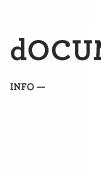This lecture will attempt to outline the notion of the idea as a place where thought and action are indistinguishable, against the conceptual background of the notions of the idea developed in the philosophies of I. Kant and A. Badiou, as well as several elements of the psychoanalytic theory of J. Lacan. This experiment rests upon three theses. Firstly, in order to think of the idea as a place of indistinguishability between thought and action, these two – thought and action – must be accompanied by a third, the real, acquired from psychoanalysis. Secondly, the idea as a place of indistinguishability between thought and action requires the figure of a subject, which although it is not opposed by an object, is nevertheless always accompanied by an object-like “question of thought”. And, thirdly, that one such subject figure can be found in Kant’s concept of the aesthetic, reflective faculty of judgment.
Under the direction of the German philosopher Christoph Menke and in collaboration with Chus Martínez, the seminar What is Thinking? Or a Taste that Hates Itself is a series of twelve two-part sessions focusing on the relationship between art and philosophy, between thinking and perceiving. It is an attempt to address the questions and the methods of philosophy for those who are curious but not necessarily close to the field. Each session is divided into a public lecture every Monday evening in the Ständehaus, followed by a more intimate discussion seminar on Tuesday mornings in the Zwehrenturm of the Fridericianum.
In September 1959, the philosopher Theodor W. Adorno gave a lecture on the occasion of documenta 2. A few days earlier, he had mentioned in a letter to Max Horkheimer his interest in visiting the exhibition, in seeing what culture—art—could do after the greatest collapse that the country and the world had ever experienced. This lecture, "The Idea of New Music” (Die Idee der neuen Musik), is of key significance to dOCUMENTA (13). It is read and commented upon by Albrecht Wellmer at the opening of the exhibition and by Carla Harryman at the end, as the inspiration and source for a reflection on the importance of deeds, like art, and thoughts, like philosophy, that are less driven by aims and results, than guided by values.
The What is Thinking? seminar is a rigorous meditation on language, on meaning, on the limits and possibilities of skepticism, on imagination as the ground for social democracy, and on art and experience. It aims to contribute to an understanding of the importance of an art exhibition with the history and tradition of documenta, as a crucial space for the community to respond to questions of ethical and aesthetic significance.
The seminar sessions can be attended individually or in full. Texts and other materials for the sessions are available online.
Rado Riha is a senior research fellow and currently the head of the Institute of Philosophy, Centre for Scientific Research at the Slovenian Academy of Sciences and Arts, and coordinator of the philosophy module at the post-graduate study programme of the University of Nova Gorica. Riha's research topics include ethics, epistemology, contemporary French philosophy, the psychoanalysis of Jacques Lacan, and the philosophy of Immanuel Kant.

















